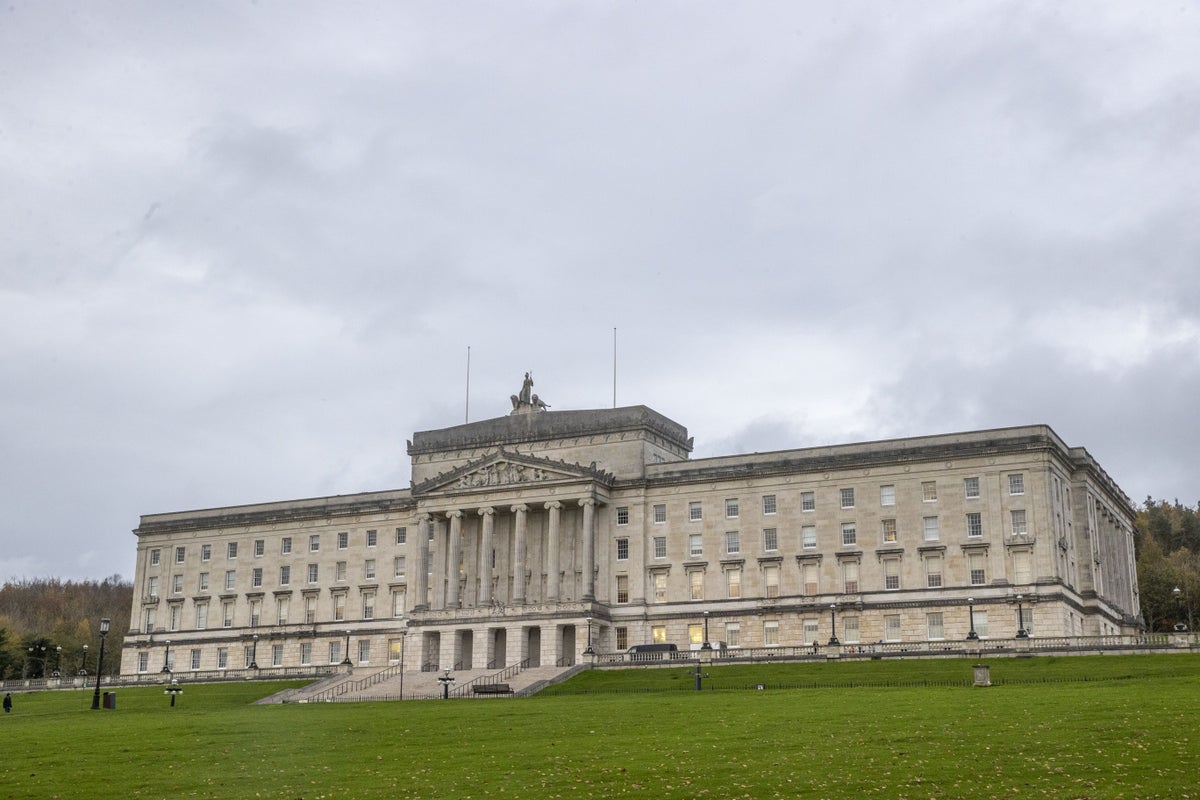
The Executive has prioritised funding in its Budget to areas which make a real difference to people’s lives across society, Finance Minister John O’Dowd has said.
MLAs in the Northern Ireland Assembly backed the 2025-26 Budget following a lengthy debate on Monday.
The SDLP opposed the spending plan, but it passed with 57 votes in favour out of 67 votes cast.
Ministers in the powersharing Executive agreed its Budget in April, with increased investment pledged to tackle hospital waiting lists and support parents with the cost of childcare.

Mr O’Dowd opened the Assembly debate on the spending proposals.
He said: “The agreement of this Budget shows this Executive’s determination to work together and do things differently, using our limited resources to deliver what matters most.
“It reflects our Programme for Government, having specifically ring-fenced some £441 million for our shared priorities.
“While the funding received following the Chancellor’s spring statement could not be included in the formal departmental budget outcomes, the Executive did agree how this money would be allocated in June monitoring.
“Including these indicative June monitoring allocations, this Budget provides departments with £19.3 billion, which will be spent on running our public services and investing in our infrastructure.
“£16.8 billion of this has been provided for day-to-day services, including £1.2 billion earmarked for specific purposes and £15.6 billion of general allocations which may be spent at the discretion of individual ministers.
“With health receiving £8.5 billion, education receiving £3.3 billion and justice receiving £1.4 billion, these three departments alone account for some 80% of the funding for day-to-day spending available, providing vital funding for our health service, schools, policing and the wider justice system.”
Mr O’Dowd said “significant challenges” remain for ministers delivering public services with stretched resources.
He said: “I believe the 25/26 budget prioritises the funding we have available to make a real difference for the betterment in people’s lives across society.
“This Budget provides record levels of funding for our public services and helps facilitate the delivery of our Programme for Government priorities.”
He added: “Simply put, additional funding for one area means less for another.
“Articulating problems is very, very easy.
“Working together to address them is what we are elected to do.”
The SDLP published its own five-point plan to improve the Budget, with proposals including ensuring that at least 10% of departmental spending must be ring-fenced and matched to Programme for Government priorities, and securing Executive control over more tax, borrowing and spending powers.
Opposition leader Matthew O’Toole claimed the Budget represented “drift, inaction and distraction by the Executive”.

He said: “The Executive has received record levels of funding, the question today is what have they done with it?
“How clear and specific are the targets set out in this document, the second full-year document the restored Executive is laying out?
“How ambitious, realistic, those plans are? The answer, I am afraid, is not at all.
“There has been consistent drift and inaction from the minister.”
Mr O’Toole added: “I would expect to see, from a republican finance minister, a little more ambition than to simply say London isn’t giving us enough money, therefore we can’t take action.
“The test of people in power is not what they do to blame others for the limitations on their power.
“This document does not have the level of ambition we need for our public services, it doesn’t come near to the kind of aspiration we should have for our people.”
Starmer under fire for missing ‘open goal’ on youth mobility in post-Brexit reset
Man fatally stabbed in north-west London named by police
PM defends ‘common sense’ EU deal as critics condemn ‘surrender’ to Brussels
Gary Lineker apologises for ‘genuine mistake’ as BBC confirms early exit
The Brexit reset is a start for growth – but Starmer should go even further
Nick Knowles: Housebuilding plans are a chance to include ‘essential’ gardens







